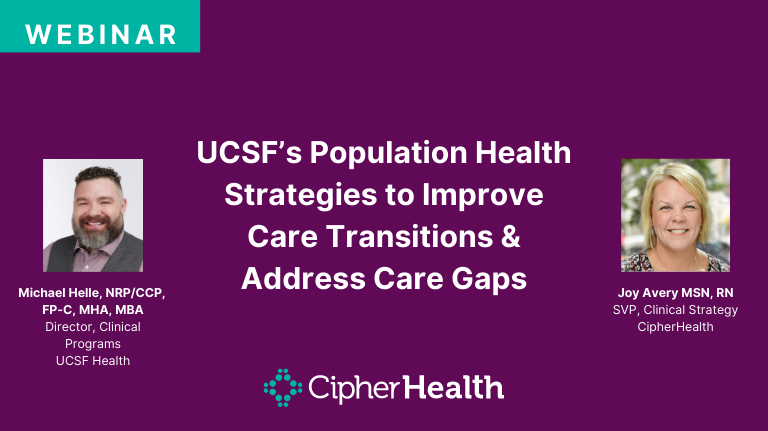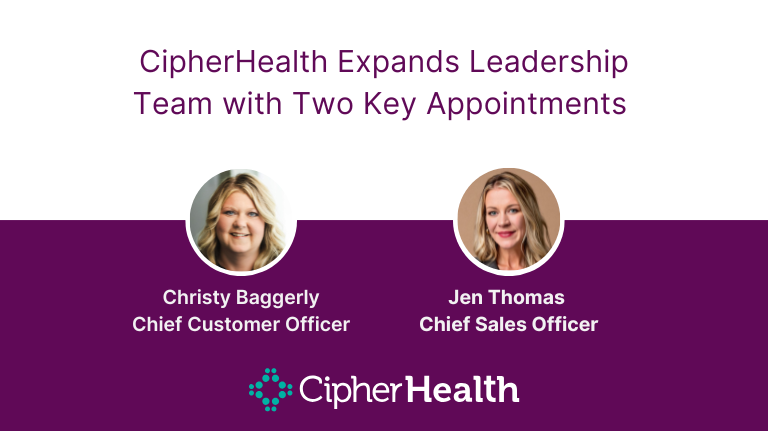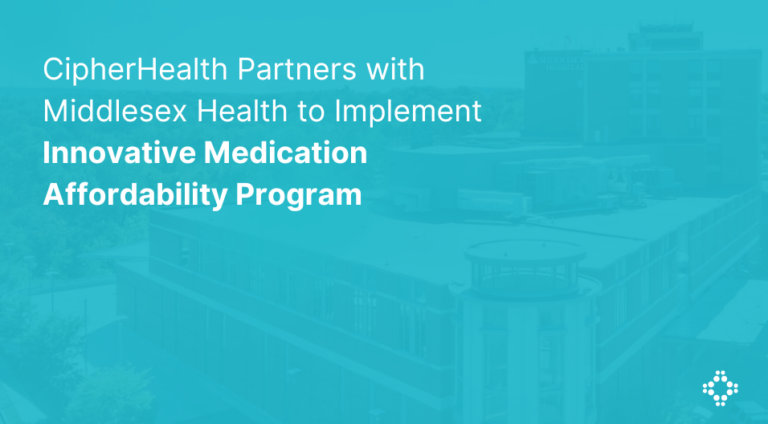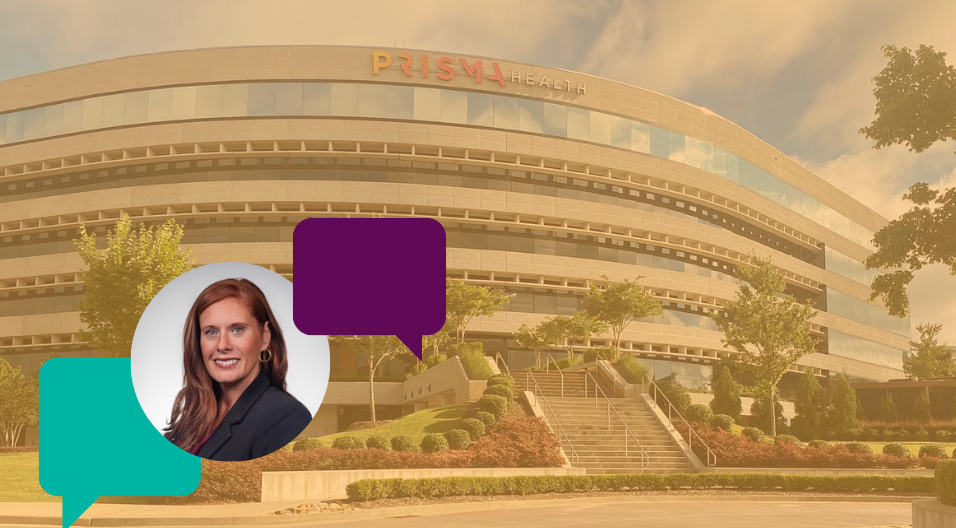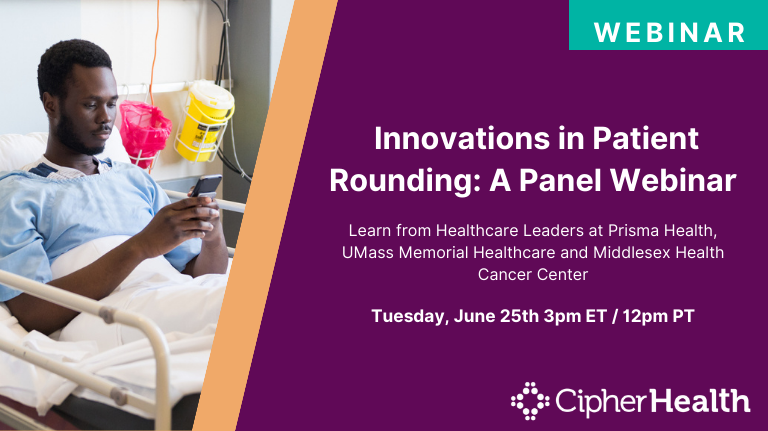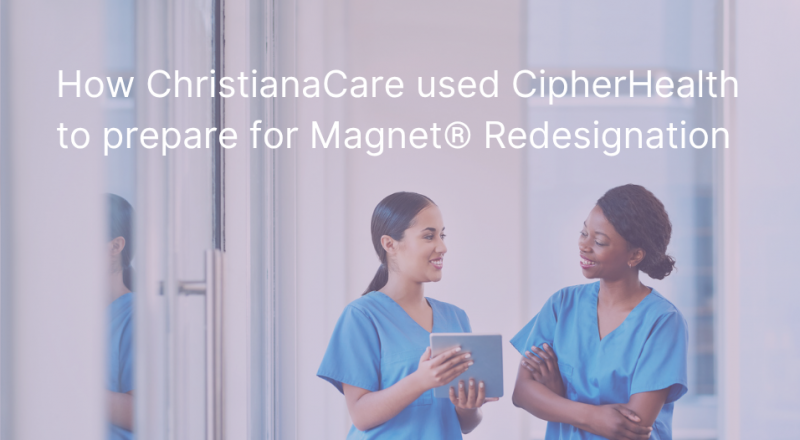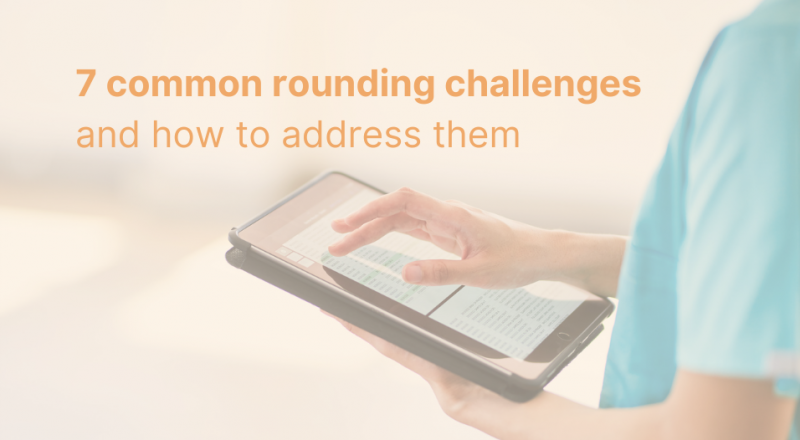In our recent panel webinar Innovations in Patient Rounding, Tina Hunter, MBA, BSN, RN, Executive Director of Patient Experience at Prisma Health, shared the journey of implementing Self-Service Rounding (SSR) in their healthcare system. She discussed the improvements SSR has brought to Prisma Health, highlighting the scalable nature of the technology and its impact on their operations and patient care.
Before adopting SSR, Prisma Health had partnered with CipherHealth for two years, utilizing their rounding platforms across various departments, including inpatient care, emergency services, and their testing environment. However, high patient volumes and diverse modalities in areas such as mammography, CT, and MRI scans presented a challenge in maintaining consistent patient-staff interactions.
Hunter said, “We have been users of CipherHealth’s rounding platforms, both on the inpatient side, on the emergency department side, and also in our testing environment since implementation. But we had a challenge which we really thought we could solve with Self-Service Rounding.”
Faced with limited patient-staff interactions due to high patient volumes, Prisma Health implemented SSR in three of their busiest mammography clinics. “On average, they’re seeing hundreds of patients daily. We wanted to connect with those patients in real-time and see what we could learn by what was happening in those spaces,” Hunter noted.
SSR allowed Prisma Health to gather real-time feedback from patients during their visits. Patients received a simple interface via SMS or QR code, enabling them to provide immediate feedback on their experience. This approach not only facilitated timely service recovery but also helped identify safety issues promptly.
When it came to informing patients, Hunter said, “The lift for the teams was minimal.” Front end staff educated patients by saying, “Hey, you’re going to get a text message right after this, and we really want to just follow you throughout your visit today.”
One instance of SSR’s impact involved something as simple as a flipped up carpet at the front door of a clinic. A patient reported it with SSR and the alert was sent to a manager. Hunter shared, “The manager got the alert immediately to his email, walked out, spoke to the patient, identified the issue, and removed the carpet and replaced it with an appropriate one.” The real-time feedback allowed Prisma’s staff to address a safety issue within minutes.
Additionally, SSR has helped with celebrating staff for their work and staff morale. Hunter said, “Patients are able to recognize the staff member in the moment in real-time utilizing this platform, which has been fantastic. The leadership in these locations have really done an amazing job at taking all of the feedback that they’ve received from patients and communicating it to their teams in real-time.”
The initial success of SSR in the mammography clinics led Prisma Health to plan an expansion across all their imaging centers. Hunter said, “We have chosen to complete the pilots in our space, and we’ve decided to expand it to all of our imaging centers, and that includes a lot of HOPD department imaging centers and a couple of freestanding as well. We’re excited to see that we’ve created a roadmap and are hopeful that we will also have this live within our entire medical group by the end of 2025.”
Conclusion
SSR has significantly impacted Prisma Health’s healthcare delivery. Hunter said, “We’ve seen some amazing results with SSR; it’s allowed us to resolve service recovery issues and intervene on safety issues in real-time, which is priceless.” As they plan to expand it across all imaging centers and their entire medical group, Prisma Health sets a compelling example of leveraging innovation to improve operational efficiency and patient satisfaction while boosting staff morale and recognition.
Click here for more information on Self-Service Rounding and how it can augment your existing rounding workflows.
